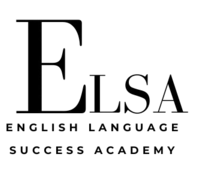This exercise is designed to help intermediate to advanced English learners expand their legal vocabulary related to the legal profession. Read the article below and fill in the blanks with the correct word from the word bank. Each word is followed by its definition to help you understand its meaning and how to use it.
Word Bank
- Bar exam: A test that law graduates must pass to be licensed to practice law.
- Civil law: A legal system based on written codes or statutes rather than on judicial precedents.
- Labor law: The area of law that deals with workers’ rights, employment conditions, and employer responsibilities.
- Common law: A legal system where laws are developed through court rulings and judicial decisions.
- OAB exam: The national exam required to practice law in Brazil, administered by the Brazilian Bar Association.
- Precedent: A legal decision or judgment that serves as an example or rule for future cases.
- Prosecutor: A legal representative who brings charges against someone in a criminal case and seeks to prove guilt.
- Binding: Legally enforceable or obligatory, requiring compliance.
- Constitution: The fundamental legal document that defines the principles and rules by which a country is governed.
- Statute: A written law passed by a legislative body.
Instructions:
Fill in the blanks in the article with the correct words from the word bank. Each word should only be used once. Make sure to read the definitions to help you understand the meaning of each word before choosing your answer.
Article: Key Differences Between the Legal Systems of the US and Brazil
Although both the United States and Brazil have legal systems rooted in Western traditions, they differ in several significant ways. The US follows a __________ system, where court rulings from previous cases are heavily relied upon to make decisions. In this system, the decisions of higher courts are considered __________ on lower courts, which means judges must follow these rulings when deciding similar cases.
Brazil, on the other hand, operates under a __________ system, where laws are primarily codified, and judicial decisions do not carry as much weight in future cases. Brazilian judges apply existing statutes rather than relying on judicial __________. This makes Brazil’s legal system more focused on interpreting written law rather than shaping it through past rulings.
One major difference between the two countries lies in how legal professionals enter the profession. In the US, law graduates must pass the __________, a rigorous exam that grants them the right to practice law. Similarly, in Brazil, aspiring lawyers must pass the __________, which is overseen by the Brazilian Bar Association (OAB).
Another area where the two systems differ is in their treatment of labor laws. Brazil has a specialized area of law known as __________, which governs employment relations and workers’ rights. This area of law is comprehensive and includes protections such as minimum wage and collective bargaining rights. In contrast, US labor laws are more varied and depend heavily on state regulations, which can result in less uniform protections for workers.
Additionally, the role of a __________ is somewhat different between the two countries. In the US, this legal professional represents the state in criminal cases, aiming to prove that the defendant is guilty beyond a reasonable doubt. In Brazil, the equivalent professional has a broader mandate, not only prosecuting criminal cases but also protecting the public interest and ensuring that the government acts within the law.
Finally, the legal systems differ in how they manage judicial oversight and citizen rights. In both countries, the __________ plays an essential role in safeguarding individual freedoms and ensuring that laws are applied consistently. However, the interpretation of rights under Brazil’s constitution is often influenced by international human rights norms, while the US courts tend to prioritize national constitutional principles.




